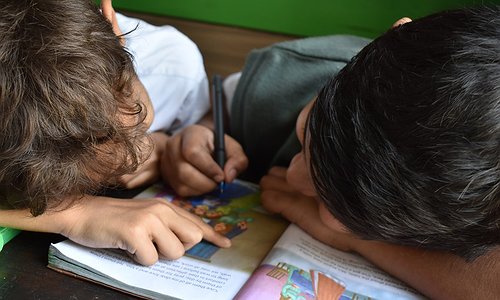Help your child successfully transition from playschool to big school
Moving from pre-school into a formal schooling environment is a big step not only for young children, but also for their parents. Doubts and anxiety often accompany this major move, but parents should aim to ensure a conscious transition which addresses specific issues that may arise, so that their child starts their school career on a solid foundation, an expert says.

General Manager at ADvTECH Junior Colleges
“Some of the practical things can be very exciting – sorting out school uniforms and supplies, learning about the new routine, meeting the new teacher and exploring the new school grounds,” says Trudie Gilmore, General Manager at ADvTECH Junior Colleges.
“However, the increased demands and unfamiliar environment can be daunting, and children need to be eased into the new situation.
Additionally, parental expectations can cause unnecessary pressure at this young age,” she says.
Gilmore says when embarking on this exciting new life chapter, parents and guardians should remember the following:
ALLOW FOR MAKING MISTAKES
The lesson is in the learning, not only the outcome, notes Gilmore.
“At this age, parents should encourage their children to be more independent and, where possible, to think for themselves. Encourage your child to practise small ways to look after themselves such as dressing themselves, ensuring their bookbags are packed, and looking after their belongings. Encourage and praise them for trying, even when they don’t get it perfectly right.”
PRACTISE PERSEVERANCE
“It can be tremendously frustrating for young children if they are unable to complete a task to their satisfaction. Teach your child that when learning new things, it’s important that they keep on trying, even if they find things challenging. Don’t step in and ‘fix’ the situation, but rather guide, encourage and motivate.”
PLAY NICELY
Junior school is an important social milestone, and the time when children need to start working and engaging in meaningful play with their peers, even if they don’t automatically get along. Encourage your child to be inclusionary and kind, which will help them develop emotional maturity, as well as confidence.
“You can also prepare together by acting out different situations with toys. Playing games that involve turns or rules, such as board games, are good for practising how to get along with others. This way, children can try out some of the skills they’ll need later to make friends.”
ENCOURAGE CURIOSITY
“Being interested and curious about the things around us is really important for learning. Encourage your child’s natural sense of curiosity by talking to them about things, people and places when you are out and about. New research has shown clear benefits for children whose parents engage them in productive conversation, that is, where each takes turns to listen and respond appropriately,” says Gilmore.
“Listen to and answer their questions, nurture their love of reading – an exciting and empowering new skill - and look things up on the computer together. Try to see the world through your child’s eyes, and talk and wonder about the everyday things you see and hear.”
Gilmore says parents must be prepared to help their children navigate and manage increased stress levels caused by more challenging schoolwork, homework, assessments, diversity within the school environment, after-school activities and possible bullying.
“Ensure your child is able to respond to the challenges they will face every day, by limiting any additional pressure,” she says.
“And remember, sleep is key. Children who get enough sleep are likely to be less short-tempered and better able to handle school stress. Also beware of piling on extra-mural activities. We’ve come to believe that busy equals happy, but over-scheduling means less free time and family time.”
Our society is expecting more and more from children at younger ages, says Gilmore.
“Our job as parents and guardians is to help them understand and respond appropriately to these demands, and develop their emotional intelligence to set them up for a successful and productive school career.”
Submitted by: Gwen Bosman / MEROPA
Main Image URL



